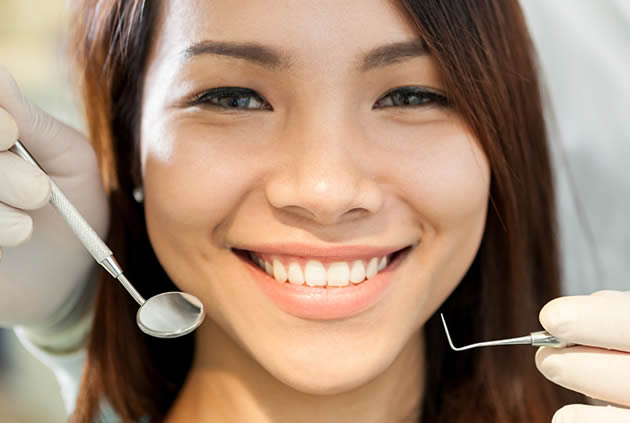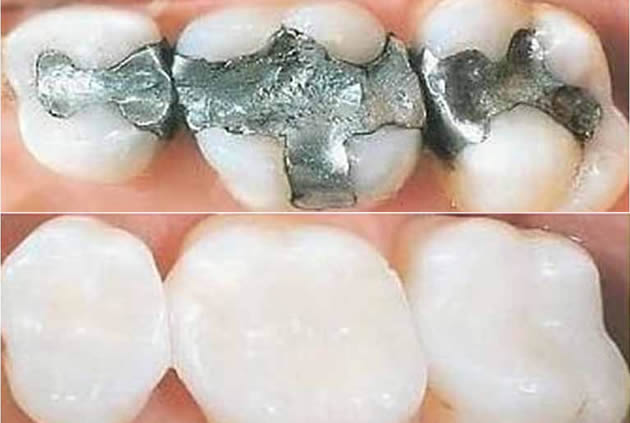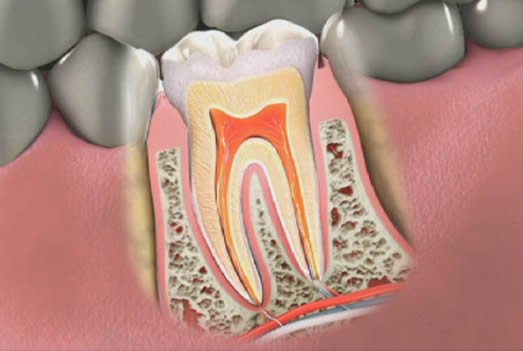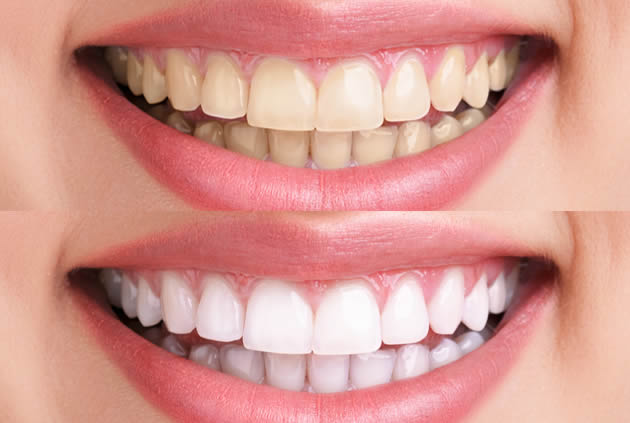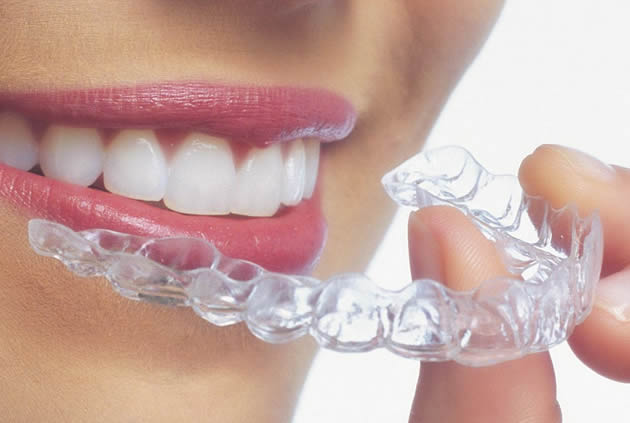
Cosmetic dentistry is becoming an increasingly popular option for improving not only the appearance of your smile but your overall self-confidence. If you are considering cosmetic dentistry as a means to better both your smile and your image, the following may answer some of your most common questions:
What can cosmetic dentistry fix? Cosmetic dental treatments and procedures can fix a multitude of issues including crooked, gapped, stained, discolored, broken, or missing teeth.
How do I locate a qualified cosmetic dentist? Search for a dentist who is accredited with the American Academy of Cosmetic Dentistry (AACD). Inquire about a potential dentist’s training and experience with the treatments you are seeking, as well as referrals and photos from previous patients who have undergone the same procedures.
What are some common cosmetic dental procedures and treatments? Porcelain veneers, composite bonding, dental implants, teeth whitening, and tissue sculpting are all examples of cosmetic options available to improve your smile.
How long will the process take to achieve a better smile? The length of time varies dependent on the type of procedure or treatment and also on your individual needs. However, many cosmetic procedures can be completed in as little as one or two dental visits.
How can I preview what my new smile will look like? Modern technology allows your cosmetic dentist to use computer-aided imaging and models to show the potential of your new smile.
How long can I expect my improved smile to last? With proper oral care and consistent visits to your dentist, most cosmetic dental treatments and procedures can last for many years and even decades.
With the help of cosmetic dentistry, an improved smile will boost your self-confidence, as well as better your overall oral function and health. Consult with an accredited cosmetic dentist to develop a treatment plan that addresses your specific cosmetic concerns and get ready to greet the world with a bright, new smile!
We treat patients from Baltimore and the surrounding area

Special occasions like class reunions and weddings where photos are going to be taken are important. You will want to look your best, especially when you look back on the photos in years to come. When you look in your mirror, are you noticing that your smile seems less than its best? Could your look use some refreshing?
As time passes, our smiles age. Whether you realize it or not, your teeth are discoloring a little bit every day. Discoloration can come from the food we consume, such as blueberries, beets, blackberries, balsamic vinegar or soy sauce. Drinking tea, red wine, coffee or dark soda can also affect the brightness of your smile. Smoking leaves teeth looking yellow and dingy.
As well as discoloring, our teeth slowly wear away. The outer, whiter layer of enamel will thin with age, revealing the yellower layer of dentin underneath. The length of a tooth is also reduced with age as teeth wear away with natural, everyday use. Short, discolored teeth send a signal of old age whether we intend them to or not.
Composite bonding, porcelain or composite resin veneers and dental crowns can help you achieve a brighter, whiter, more even smile. Veneers can even correct gaps and hide chipped or malformed teeth. Dental implants can be an excellent solution to a missing tooth. A smile that is badly misaligned might require braces or some other kind of orthodontia to achieve optimal results.
Your cosmetic dentist can work with you to determine what steps should be taken to address your particular smile concerns and rejuvenate your smile, making you look younger and more refreshed. You will begin to see the positive responses from people who will be able to see you at your youthful best, allowing you to be your most confident, most comfortable self. The changes you make now can change your smile for years to come.
We treat patients from Baltimore and the surrounding area

Are you unhappy with your smile? Do crooked, gapped or missing teeth affect you socially and professionally? Do you wish you had received braces as a child? Do you desire a brighter, whiter smile? Have you been dreading some upcoming special occasion, worried about how you’ll look in the photos or in person? If you have any insecurities about your smile, talk to a cosmetic dentist. How you feel about your smile can change.
There are so many “little” reasons to take steps to improve your smile, but you may need a bigger occasion, something very special, to help you take that first step. Is there a class or family reunion coming up? Nothing erases the years like restoring your youthful, attractive smile. Leave them doing a double-take as they realize who you are and how good you look!
Are you about to get married? At no point in your life are you likely to have as many photos taken of you as you will on your wedding day. These photos are often cherished for generations, and should represent the best you possible.
Even occasions like job interviews or first dates can warrant having your smile spruced up. Your smile is a huge part of the first impression you make on the people you meet, and with a brighter, whiter, more even smile, you will meet those people with confidence, unafraid to eat, drink, talk or laugh in public.
Your cosmetic dentist can talk to you about bonding, which allows the dentist to restore the shape of the original tooth using tooth-colored resin composites. Cosmetic contouring reshapes your teeth to correct overlapping, chipped or cracked teeth, and teeth whitening can be used to brighten your smile. Dental veneers can be used to cover gaps, discolored or stained teeth, and missing or broken teeth.
Do you have a mouth full of metal fillings? Your cosmetic dentist can remove this unsightly metal and replace it with a cosmetic filling that matches the surrounding tooth. No one will know you have fillings!
Don’t wait to begin your journey with a cosmetic dentist. You can face that special occasion with confidence and an attractive smile.
If you live in the Baltimore area contact us today

Pregnancy is an exciting time in your life that brings about many changes to your body. Your oral health is affected as well. There are specific things to keep in mind during pregnancy related to your teeth, gums, and caring for them. Let’s talk about the things you should be thinking about for your mouth while expecting a baby.
Medications:
Tell your dentist about any prescription or over-the-counter medicines you’re taking, so that it’ll be easier to prescribe any drugs needed for you during dental treatment. Your dentist may also want to consult your doctor to discuss safe painkiller or antibiotic options for you during pregnancy.
X-Rays:
If you have a dental emergency or a problem that needs diagnosis, an X-ray may be required. Radiation exposure from dental X-rays is very low, but your dentist will cover you with a leaded apron to protect your abdomen. A leaded thyroid collar will also be used to protect your thyroid from radiation.
Gingivitis:
It’s not uncommon for some women to develop pregnancy gingivitis, which is a gum problem that occurs during the hormonal fluctuations of pregnancy. This condition is an inflammation of the gums that causes tenderness, swelling, and usually some bleeding during dental hygiene tasks. Your dentist may suggest more frequent cleanings during pregnancy to prevent gingivitis, because left untreated it can advance to more serious gum disease.
Pregnancy tumors:
Some pregnant women experience overgrowths of tissue called pregnancy tumors, which appear on the gums mostly during the second trimester. They are not cancerous and are usually located between your teeth. Dentists believe they are related to having too much plaque. Pregnancy tumors bleed easily and appear red and raw. Usually they go away after the baby’s birth, but some women prefer to have them removed before then. Discuss options with your dentist to see what’s best for you.
If you need a dentist in Baltimore contact us today

Problems with your mouth or teeth can occur suddenly. You might be injured playing a sport, eating, or even just while doing a seemingly harmless activity. You should know what types of dental problems are considered emergencies, and what to do while waiting to see your dentist. Quick action can make a big difference in saving a tooth, or limiting damage to your mouth or face.
What is considered an emergency?
Not every dental problem must be treated as an emergency, but some do require professional treatment as soon as possible. This includes a broken or knocked out tooth, lost crowns and fillings, severe toothache, infection, and injuries to the soft tissues of your mouth.
What should I do?
See your dentist as soon as possible to treat the problem and prevent further damage. Here are some steps to take if you experience any of the following common dental emergencies:
- Severe toothache – rinse your mouth with warm water and floss to remove trapped food.
- Swelling – apply a cold compress on the outside of the swollen area. Do not place any painkiller or aspirin against your gums, because it can burn your gum tissue.
- Chipped or broken tooth – if possible, save the piece that has broken off. Rinse both the piece and your mouth with warm water. If it is bleeding, hold gauze on the area. Apply a cold compress to relieve pain and reduce swelling.
- Lost filling – apply dental cement from your drugstore to fill the hollow area until you can see your dentist. Or, try placing a bit of sugarless gum into the area.
- Lost crown –try to replace the crown on your tooth and hold it in place temporarily with dental cement, denture adhesive, or toothpaste.
- Abscess – infections in your mouth can become abscessed, which is a serious condition. Rinse with warm salt water and see your dentist immediately.
- Soft tissue injuries – treat damage to your gums, cheeks, tongue and lips by rinsing with warm salty water. Hold gauze to the specific area to control bleeding, and hold a cold pack to the external area.
We treat patients from Baltimore and the surrounding area

Plaque is your mouth’s enemy. It is a film of bacteria that forms on your teeth, and produces acid as it mixes with sugar from foods and drinks you consume. Over time, these acids destroy your tooth enamel and lead to decay. Plaque can also form under your gums and affect both the gum tissue and the bones supporting your teeth.
So how can you avoid getting the plaque that causes these problems? Here are some helpful tips.
Brush
Use a fluoride toothpaste to brush your teeth at least twice a day. Choose a soft-bristled toothbrush and brush all of your tooth surfaces, as well as your tongue.
Floss
As much as many people don’t want to, flossing your teeth every day is important in getting rid of plaque between your teeth and at your gum line.
Eat healthy foods
Some foods help keep plaque off your teeth. Munch on apples, cucumbers, carrots, and other raw vegetables and fruits. Crunchy foods like these will help clean your teeth while filling you up and giving you helpful nutrients.
Avoid junk food
On the other hand, limit the amount of junk food that you eat. Sugary drinks and foods introduce sugar into your mouth that will stick to your teeth and lead to plaque formation.
See your dentist
Even if you practice good oral hygiene, some amount of plaque usually forms. It hardens to become tartar, which can only be properly removed by your dentist. Dental checkups every six months will help you keep plaque under control, and a healthy smile on your face.
Schedule your appointment at our Baltimore dental office












